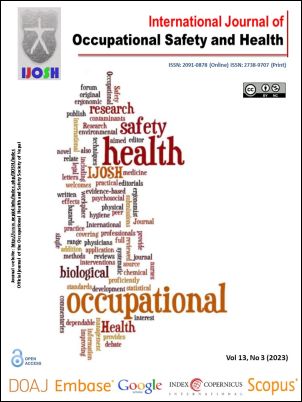Adoption of occupational health and safety as a fundamental human right and its implications for Nigerian workers
DOI:
https://doi.org/10.3126/ijosh.v13i3.51385Keywords:
Fundamental human rights, accident rates, safe working environment, occupational health and safetyAbstract
Introduction: This paper examines the recognition of occupational health and safety (OHS) as a fundamental human right and its implications for Nigerian workers. It highlights the need for employers and governments to prioritize workers’ safety and reviews the challenges faced by Nigerian employers in providing a safe working environment.
Methods: A critical review of existing literature and secondary sources of information was conducted to explore the meaning of fundamental human rights as they pertain to OHS. The paper investigated the need for recognizing OHS as a fundamental right and the role of governments and employers in fulfilling this right.
Results: The recognition of OHS as a fundamental human right is crucial in protecting workers’ lives and promoting decent work, leading to economic and social benefits. Employers, governments, and international organizations must respect, protect, and fulfill this right for all workers. The adoption of OHS as a fundamental right would encourage governments to introduce legislation promoting a culture of safety and sensitizing businesses to the need to implement policies, procedures, and processes to provide a safe working environment, including standard safety training and adequate resources.
Conclusion: Adopting OHS as a human right is beneficial for the workforce but requires investments from employers to comply. The Ministry of Labor and Employment in Nigeria should ensure that all accidents are reported and recorded to build a useful database. Improving OHS in Nigeria necessitates compliance, training, and access to resources. Accurate data is crucial to develop effective solutions for workplace accidents.
Downloads
Downloads
Published
How to Cite
Issue
Section
License
Copyright (c) 2023 Ochuko Felix Orikpete, Daniel Raphael Ejike Ewim

This work is licensed under a Creative Commons Attribution-NonCommercial 4.0 International License.
This license enables reusers to distribute, remix, adapt, and build upon the material in any medium or format for noncommercial purposes only, and only so long as attribution is given to the creator.





